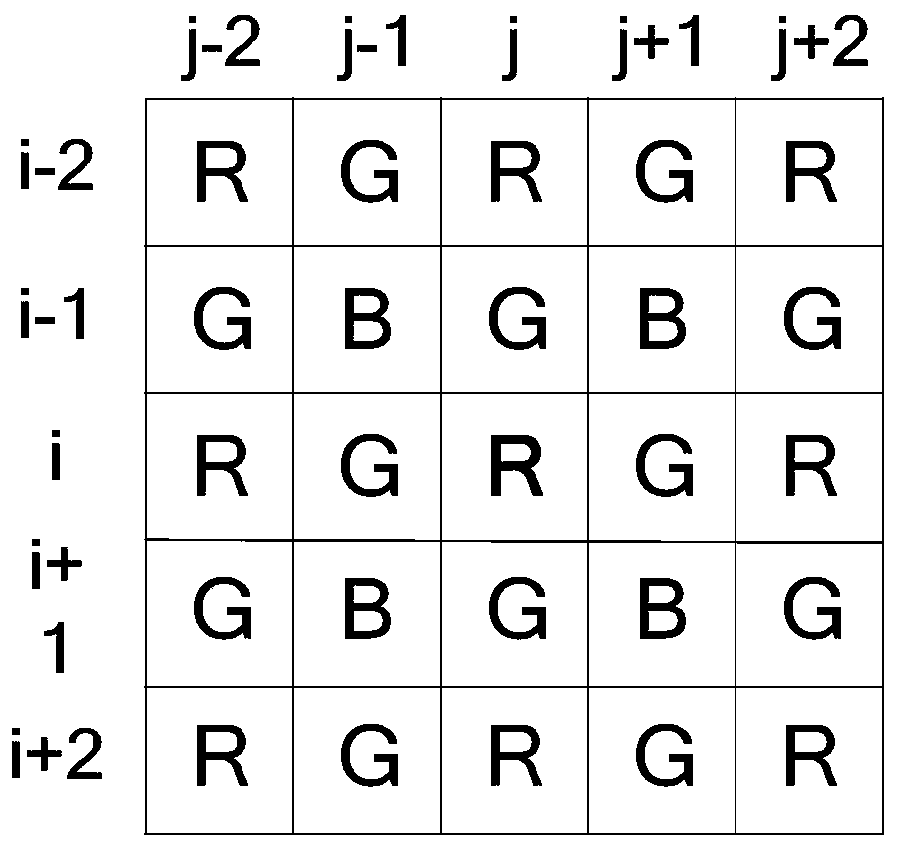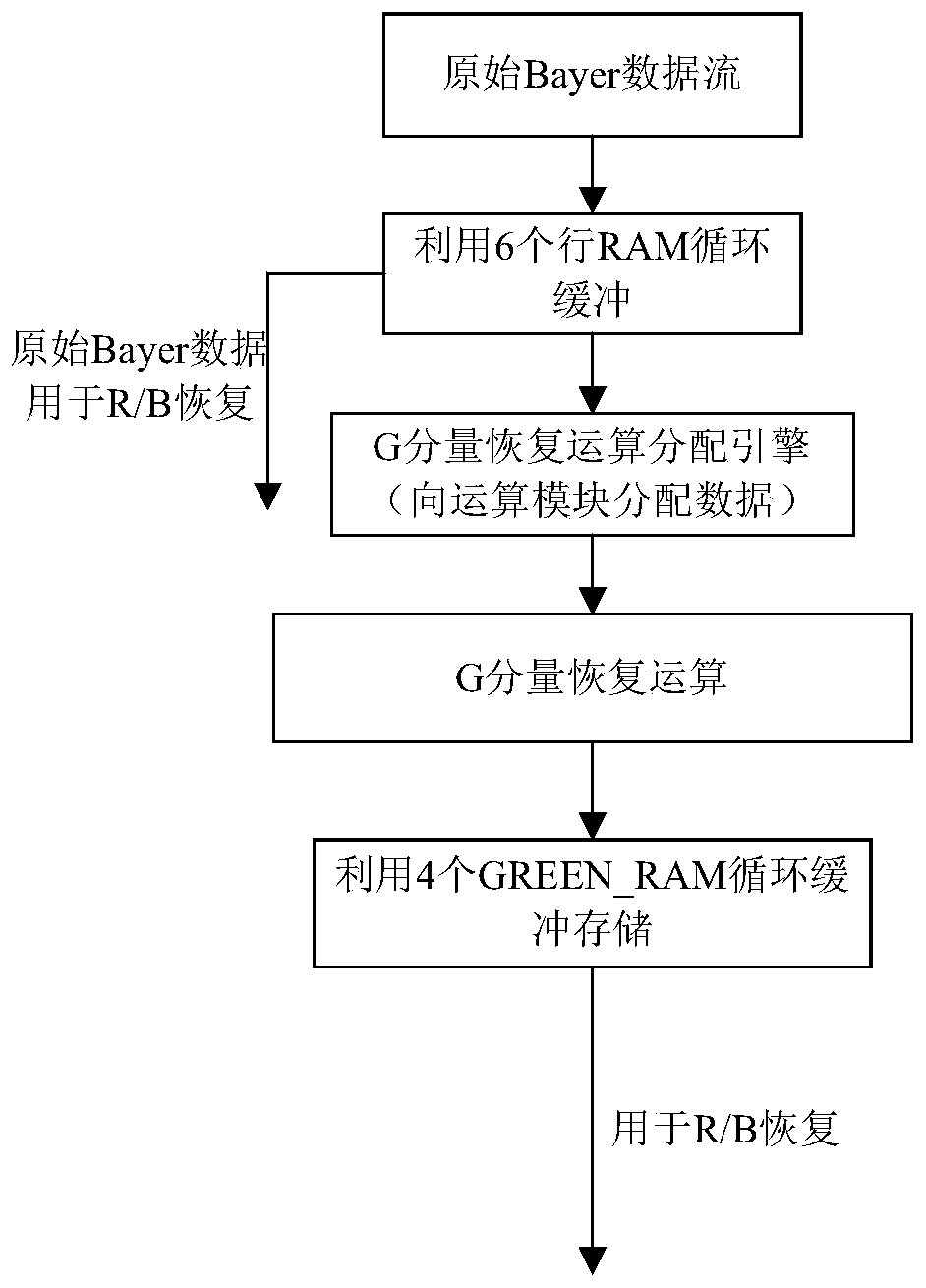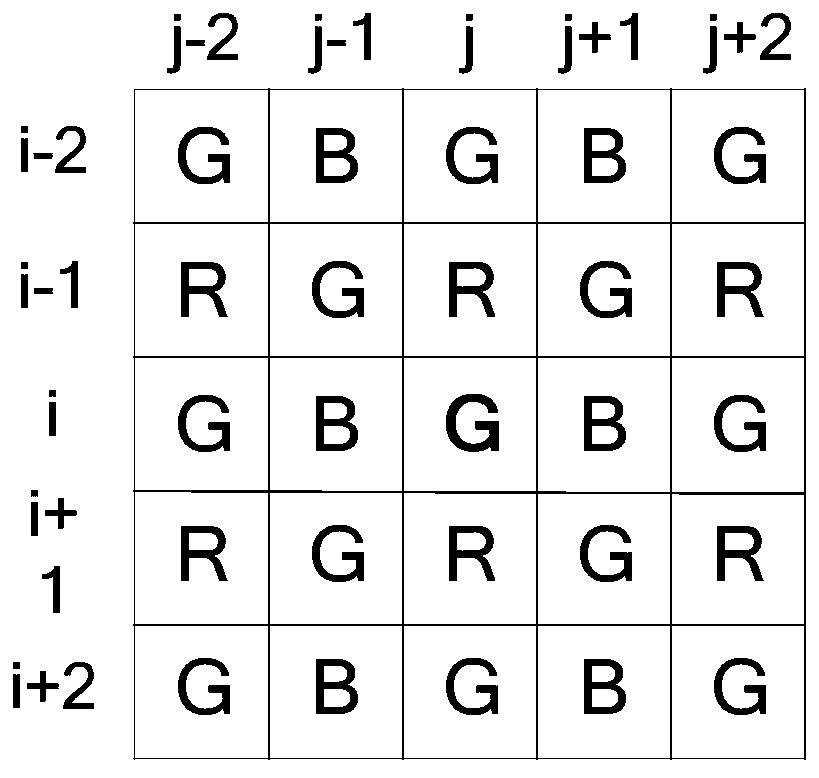FPGA Realization Method of Hamilton Adaptive Interpolation in Real-time Image Processing
A technology of real-time image and implementation method, applied in the direction of image signal generator, etc., can solve problems such as easy to produce jagged effect, blur, complex restoration image process, etc., and achieve the effect of image restoration processing with excellent effect
- Summary
- Abstract
- Description
- Claims
- Application Information
AI Technical Summary
Problems solved by technology
Method used
Image
Examples
Embodiment Construction
[0073] The following is attached Figure 1-6 The present invention is further described.
[0074] The present invention is based on Hamilton self-adaptive interpolation algorithm theory, adopts FPGA hardware to realize the algorithm of this theory, comprises the following steps:
[0075] Step 1, G component recovery;
[0076] In the Bayer image, since the number of green pixels is twice the number of red or blue pixels, the green pixels contain more edge information of the original image, so the Hamilton adaptive interpolation algorithm starts from the horizontal and vertical directions The green component is interpolated and reconstructed, the edge detection operator is composed of the gradient of the luminance signal and the second order differential of the chrominance signal, and the green component is interpolated along the correct direction indicated by the edge detection operator, as follows figure 1 The G component recovery at the center position R(i,j) is taken as an...
PUM
 Login to View More
Login to View More Abstract
Description
Claims
Application Information
 Login to View More
Login to View More - R&D
- Intellectual Property
- Life Sciences
- Materials
- Tech Scout
- Unparalleled Data Quality
- Higher Quality Content
- 60% Fewer Hallucinations
Browse by: Latest US Patents, China's latest patents, Technical Efficacy Thesaurus, Application Domain, Technology Topic, Popular Technical Reports.
© 2025 PatSnap. All rights reserved.Legal|Privacy policy|Modern Slavery Act Transparency Statement|Sitemap|About US| Contact US: help@patsnap.com



